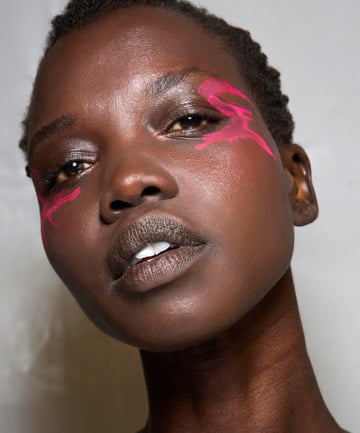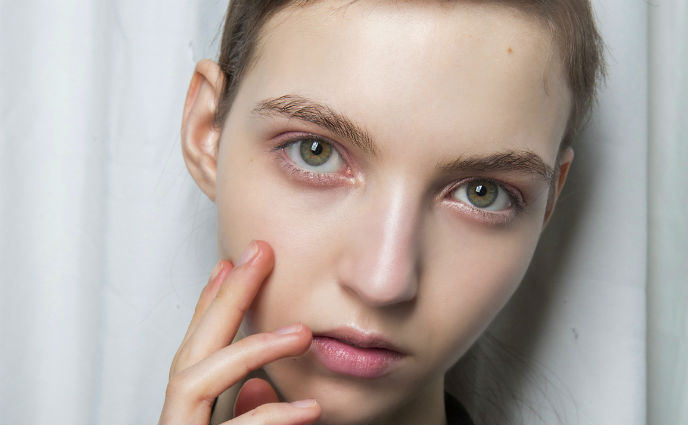By now, you probably know your skin type—but do you also shop for it? Guanche says especially for those who are acne-prone, being mindful and selective of ingredients in face wash, foundations, moisturizers and other serums will help prevent zits, blackheads and other impurities. Our skin naturally produces its own moisturizer in the form of sebum from our oil glands, but if you use a product that has a high concentration of oil for your unique cells, you might notice an uptick in shine. "If it feels like you chased six slices of pizza with three tablespoons of peanut butter, this isn't the right product for you," she says.
Image via Imaxtree
Image via Imaxtree
Once you've experienced these signs, the next step is figuring out which chemical is causing your skin to freak out. Prystowsky suggests the bandage use test to determine your skin's reaction. To exercise this at home, apply some of the product to a spot band-aid and leave it on for two days, then remove and take a look at your skin. Is it red? Bumpy? Raised? This is how you know your skin isn't a fan of this product.
If your results prove that your skin is overboard sensitive? It might be time to speak with a professional. "If you cannot find a product to suit your needs because you are reacting to 'everything' then you should see a contact dermatitis specialty dermatologist to try to pinpoint the chemical causing the problem. While not always helpful, it is your best shot at seeing what chemicals you need to avoid," she recommends.
Image via Imaxtree
If your results prove that your skin is overboard sensitive? It might be time to speak with a professional. "If you cannot find a product to suit your needs because you are reacting to 'everything' then you should see a contact dermatitis specialty dermatologist to try to pinpoint the chemical causing the problem. While not always helpful, it is your best shot at seeing what chemicals you need to avoid," she recommends.
Image via Imaxtree






